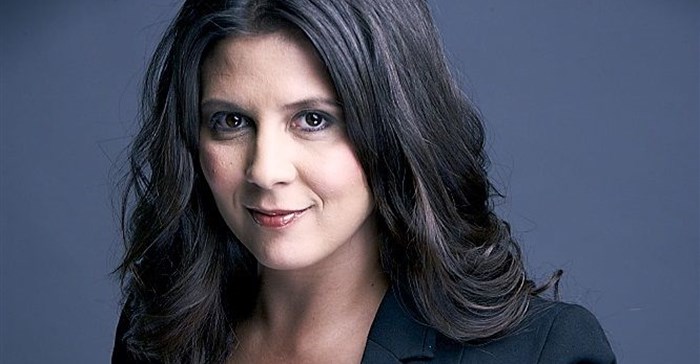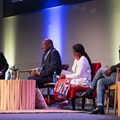#BizTrends2018: Information overload - finding the 'right' kind of news

There’s an increasing desire to know more about current affairs and to participate in trending discussions. Tweets, texts and even WhatsApp voice notes from the public are now being broadcast on air to express opinions or drive content. Listeners no longer call in to a radio station just to have their say, they’re also telling the stories on the ground as they unfold. Individuals have the ability to shape the news and in many cases they’ve become de facto reporters.
With the avalanche of information available and the hunger for more in-depth coverage, it’s up to the media to continue providing news on as many platforms as possible but with a greater focus on analysis and credibility.
South Africans want press conferences and court cases to be live streamed more now, than ever before. They want to read the headlines on WhatsApp and post a news article on Facebook. The danger is that while technology has increased access to information, it has also created a space where anyone can push their own agenda.
If there’s anything to learn from the recent US elections and Brexit, it’s that social media often fuels an inaccurate perception of public sentiment, leading to biased projections. The challenge now is to realise that there’s no guarantee that there’ll be a clear distinction between fact and fiction.
In 2018 South Africans will continue to download, retweet and comment on the big stories at a blistering pace. In this challenging economic and political climate, passing on fake news can have unintended ramifications.South Africa is heading into one of the most contested and politically heated national elections since the dawn of democracy in 1994. We’ve already seen the role that social media, leaked documents and misinformation have played in the ANC’s presidential election. With the future of the country in the balance, the stakes have never been higher.
Last year, a subversive campaign led by Bell Pottinger, the notorious multi-national public relations firm, was exposed to the South African public. The intention of this media offensive, commissioned and paid for by a Gupta-owned company; was to deflect attention away from the numerous allegations of State Capture by fuelling racial tensions. Terms like “White Monopoly Capital” and “Radical Economic Transformation” were introduced as the salacious buzzwords for the country’s new political narrative.
The ruling party itself uses the term “smear campaign” and “unfounded allegations” in many of its press releases. Then-ANC Deputy President Cyril Ramaphosa said he was warned about a smear campaign and believes the string of leaked emails regarding alleged affairs were used to stifle his bid to lead the ANC.
More recently, Nkosazana Dlamini-Zuma was also in the spotlight and her team were also quick to deny allegations that her campaign was funded by a self-confessed criminal. While the current political environment remains smouldering under a litany of leaked emails about state capture, South Africans need to be aware of the politics at play and the power of social media when it comes to misinformation.
It’s not all bad news, though. Fortunately, there are those that will not remain silent while the few deceive the many.
More and more documents are being leaked to journalists, and whistle blowers are becoming more courageous in publicising wrong doing. Employees, business leaders and even politicians themselves are stepping out of the shadows to shine the spotlight on the lies being sold to the South African public.With an enormous amount of fact-checking to do on a daily basis, and this kind of information overload, it’s easier for mistakes to slip through. Journalists tasked with disseminating this information are not just double-checking their facts, they’re now triple and quadruple checking their work to ensure the right information enters the public domain.
Following up and quadruple checking even on some of the more mundane stories has become imperative. Social media has unfortunately made it far too easy to retweet or repost a salacious headline that’s often purely fake news.
Recently, a photo of a hailstone the size of a tennis ball was trending across South Africa in the aftermath of a massive storm, when in fact that picture was taken in another country, years ago.
The challenge for the media industry in 2018 and beyond is to ensure there’s enough information available on as many platforms as possible, while ensuring that it still goes through the relevant checks and balances. The task of having to scrutinise, interrogate and verify every news story is daunting, to say the least.
It’s easy to shift the responsibility onto the consumer to be more discerning when it comes to selecting their news sources. Therein lies the conundrum, which source is the conscientious citizen to turn to?
It falls to the journalist again, to check, and recheck; to confirm, and reconfirm; to maintain balance and objectivity while avoiding the temptation of pandering for likes, hits and headlines.Now, more than ever, the media needs to redouble their efforts to attain and retain the most prized attribute in a world of so much misinformation – credibility.











































